Bill Would Clarify No-Copay Coverage For Preventive Breast Cancer Screenings In Colorado
Colorado’s House of Representatives last week advanced a bill aimed at addressing a gap in insurance coverage for breast cancer screenings that Susan G. Komen Colorado says prevents some women from getting the screening tests they need because they can’t afford the out-of-pocket costs charged for additional testing after an inconclusive mammogram result.
House Bill 1381, sponsored by term-limited Rep. Dianne Primavera of Broomfield, would clarify that laws saying that insurance covers 100% of costs for preventive cancer screenings apply not just to a mammogram, but to medically recommended call-back procedures that radiologists estimate are necessary for about 10% of women when a mammogram is inconclusive. These procedures could include a secondary mammogram that produces more views than the original screening mammogram (sometimes called a diagnostic mammogram) and in some cases a breast ultrasound.
The legislation also would ensure that women who are at high risk for breast cancer due to genetic mutation, family history, and other risk factors, would have 100% coverage for secondary screening procedures like diagnostic mammograms and in very rare cases, breast MRIs, if those procedures fall within acceptable use guidelines developed by the American College of Radiology to complement a mammogram when completing routine screenings to detect breast cancer at its earliest stage. According to Komen Colorado, by ensuring 100% of costs are covered for these procedures when recommended by a woman’s physician, Colorado will be taking an aggressive step toward improving the likelihood of survival if a woman ultimately is diagnosed with breast cancer.
When costs prevent women from going in for medically recommended diagnostic mammograms to clarify whether an abnormality on a mammogram is likely cancerous or not, they put themselves at risk of that abnormality not being definitively diagnosed as breast cancer until the disease has grown – and potentially spread beyond the breast. Assessment by the American Cancer Society has found that when breast cancer is diagnosed at more advanced stages, the likelihood of survival 5 years later is just 26% – compared to 99% when the cancer is detected early before it has a chance to spread.
Komen Colorado argues that removing cost as a barrier for women to complete their routine screenings when a mammogram is inconclusive also can reduce costs down the road – for breast cancer patients and the health care system overall. National research estimates the cost of treating breast cancer at an advanced stage is five times as expensive as treating it at its earliest stages. An example of the difference? A cancer detected early could require a lumpectomy to surgically remove the tumor and a round of radiation delivered to the cancer site during that surgery – whereas a cancer detected after it has grown or spread beyond the breast could mean mastectomy to remove the breast, multiple rounds of radiation, multiple rounds of chemotherapy, and reconstructive surgery. The latter course is more invasive, more costly, and requires more time to complete treatment – which has implications for women who miss work while undergoing treatment.
House Bill 1381 will be heard in the Senate State, Veterans, & Military Affairs on May 2.
Toni Panetta is director of mission programs for Susan G. Komen® Colorado (Komen Colorado). Each year, Komen Colorado invests 75% of net revenues raised through its signature Race for the Cure® event into local organizations to ensure equal access to quality breast cancer care for medically underserved Coloradans. The remaining 25% of net revenues supports a national breast cancer research grant program administered by parent organization Susan G. Komen, based in Dallas.

